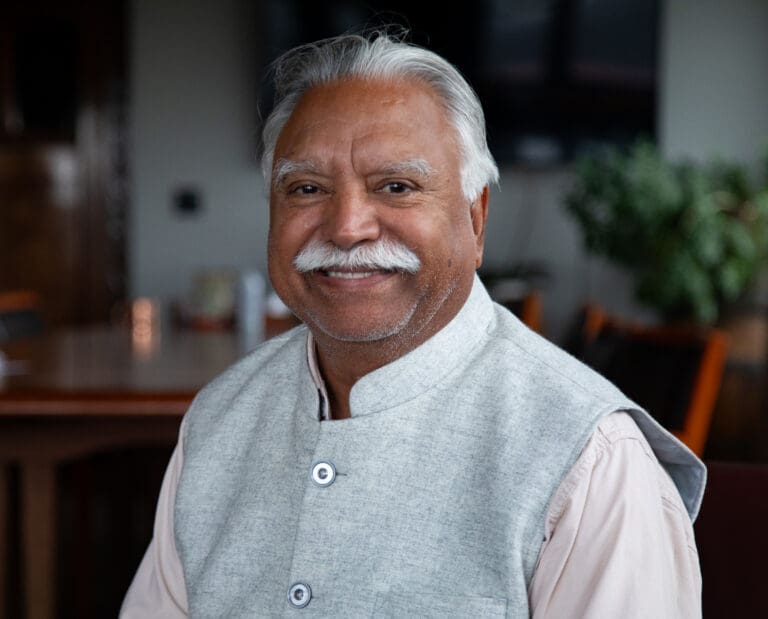“Can’t we just agree to disagree?”
Well, no. Actually we can’t. Not anymore.
This is a primary lesson learned along the path of three or four decades (who’s counting?) of writing public opinion pieces.
Back in the day (sit down and prepare for mastodon tales, all you youngsters) many of us were accustomed to slinging opinions that drew heated, even vitriolic responses. You know:
“Are you high?”
“What were you thinking?”
“Did you really wake up in the morning, think this through, and decide to write something this stupid anyway?”
“Should have expected this. I’ve been digesting your crap for decades, and …”
Note on that last one: It’s an actual comment from a column I wrote many years ago at The Seattle Times, subject long-ago forgotten, response burnished. All I could muster in response was “Wow. Most people would’ve stopped swallowing a long time ago.”
I digress, but only a little.
Point is that things have changed. Name-dropping for one last time Bob Woodward, speaking to his wife after a shouting match with Trump: “We’re in a different time, Sweetie.”
We are, and that time is Passive Aggressive Standard. And get this: The most fervent practitioners to the loathsome new process are avowed liberals. (Sorry, but it’s true.)
Here’s an example. Some weeks ago an alter-ego persona on these pages railed incessantly, for some reason, about relocating mountain goats from one range in Washington state (the Olympics) to another (the Cascades). The Hammer’s (claw) point: Relocating charismatic megafauna, often at the demonstrable risk of death, is folly, not to mention a dubious public expense.
A couple days later, a thoughtful response arrived from a reader, who made valid points about project Billygoat Airlift. And then said the fateful words: You really should do some research and educate yourself about this issue before spouting off.
Uh, OK. But the cocksure presumption here — a default position that anyone with a take contrary to one’s own obviously is uneducated on relevant facts — was the point.
Ask any cranky columnist who lives next door: We hear this all the time.
“Judd, you need to be educated on this process,” be it: interpreting the innermost thoughts of killer whales; breaching dams; skylifting goats; stringing gillnets, unstringing gillnets; building a baseball stadium on the public dime for private pleasure; enforcing school district hazing rules; redeveloping waterfront spaces; keeping restaurants open after dark; the designated-hitter rule; the relative merits of soccer at any level. On and on.
This one hit particularly close to the bone because of something the reader could not have known: I’ve covered the mountain goat issue as a journalist for decades, starting back at the (then) Bremerton Sun in the mid-1980s, when the National Park Service, in its infinite wisdom, made its first attempt to exterminate the hated (by park naturalist Ph.D. toters) critters from their midst.
As a reporter with an open mind on the subject, I found much of the park’s initial “science” on the project to be suspect — clearly aimed to bolster a preexisting belief that an Olympic milkvetch, a common weed, held higher value in a public space than an uncommon, heart-beating mammal. A value judgment. As a human and frequent Olympic backcountry visitor, I disagreed, and over the years said so in a variety of vitriolic, highly public ways.
My reader in this case had no way to know that, of course, and I’m not going to make a big deal about it in a very short column item. Misunderstanding for obvious reasons.
But this Presumption of Ignorance missile has been trailer-launched my way after writing about a broad range of subjects, mostly in recent years. It’s a devolution in civic discourse I find highly disagreeable, as well as puzzling.
These presumptions at their root are a firm belief by an admirably passionate person that any conclusions reached by another don’t match their own, the other person is simply uneducated on the topic. As in, there’s no other possible reason. (When in fact, ironically, conclusions by the accuser very, very often mirror surface-level topic points about an issue, effectively spread by activists via friendly media streams with concrete outer channeling.)
Important sidenote: A respondent’s Presumption of Ignorance may, in fact, be valid in many cases — especially those involving cream-skimming, clickbait-oriented content spewers who live exclusively in the dueling non-reality worlds of TV news and Twitter. And even the more studied, studious and serious deep-thinking journalists can only know so much about so many topics.
We’re all essentially ignorant about something, much of the time. Guilty as charged.
But not always. So the question of the week is this: When did we become a society in which two people relatively well-versed on a common set of agreed-upon facts cannot possibly come to opposing conclusions, based on their own values and experiences?
Some folks surely will quip in response: “About the same time we lost the ability to agree on a common set of facts?”
OK, point well-taken.
But that’s also something you’d hear from someone who really needs to be educated about my own proclivity to be right about things at least once in a great while. Or better yet, have an educated opinion that’s contrary to your own but still considered worthy of chewing on.
It’s what civil discourse used to taste like.
Ron Judd’s column appears on Wednesdays: Email: ronjudd@cascadiadaily.com; Twitter @roncjudd.




